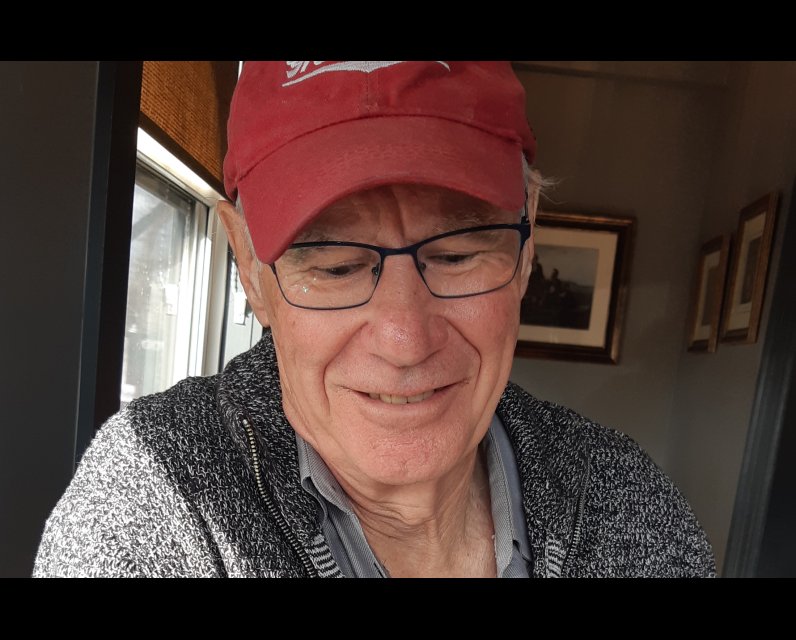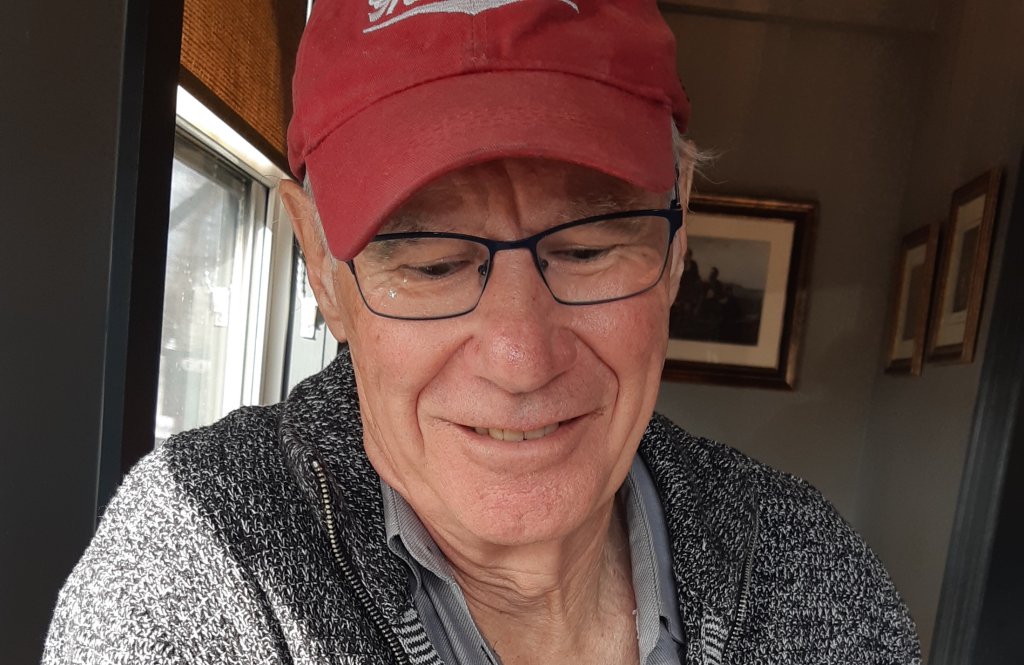Unpublished Opinions
Clive Doucet is a distinguished Canadian writer and former Ottawa city councillor. He was elected for four consecutive terms from 1997 to 2010 when he retired to run for Mayor. As a city politician he was awarded the Gallon Prize as the 2005 Canadian eco-councillor of the year. He was defeated twice by Jim Watson in 2010 and 2018 when he ran for the Mayor’s chair.
The Watsonics, Preface: A Hard Slap

"I woke up inside the upside down car, lying pinned under the caved-in roof, unable to move my arms or my legs.”—Clive Doucet
Cape Breton is wild country and the wildest part is northwest Inverness where great south-east storms roll down from the mountains then sweep across the plateau where the little Acadian villages shelter. These villages are the country of my Doucet ancestors. It’s not an easy place to live. Driving in the winter is always hazardous. It’s not just the wind and snow and ice. The weather can change so quickly and violently, you can never be sure what the condition of the road will be from one village to the next, and so it was for me and my son when we drove across the Canso Causeway from the Mainland and began the long climb back to the village from Halifax.
The driving had been easy. The road bare. Not much wind. No snow. Another hour or so and we would be home. We were chatting companionably and suddenly we were in a blizzard. I eased on the accelerator and began to peer over the steering wheel. The driver in front of us took his foot off the accelerator completely because unknown to us, the car in front of him had just slid off the road and crashed into a deep ditch. I touched the brakes. The instant I did the car spun 180 degrees and that’s the last thing I remember.
I woke up inside the upside down car, lying pinned under the caved-in roof, unable to move my arms or my legs. "Was my head still attached to my shoulders? If it is, I’m probably still alive", was my first thought. I wasn’t sure. My son’s face was so close I could touch him, but I couldn’t move my hands. All I could sense was a dullness. Everything was distant. Gradually I realized I could raise my head and the thought arose, my head must still be attached to my neck. I must still be alive.
A concussion is a curious beast. There is no blood. I seemed whole but I wasn’t. I could not focus on anything. Words came with difficulty. My attention fled from one tiny moment to the next. Nothing was clear and there was this anxiety which sloughed like a rip tide throughout my body as if I was standing on the edge of precipice. Some kind people drove us home.
The next day, I could not focus to read. The doctor said there was no sign of internal bleeding, but there was no drug, no surgery, no test that could help. Rest was the only prescription. No screens. Little reading. No writing. Sleep as much as possible. I am a writer. Reading and writing is my metier. It sounded like a prescription for life in a coffin.
It is a lovely thought that in death, our souls travel to a paradise where we will have the chance to meet our parents and grandparents, and all the people who have loved us and whom we have loved. I’d like to think that this might happen, that maybe our mortal coils in returning to the primordial atomic form, that we will somewhere in the cosmic time scale have a chance to meet our most cherished people. I’d like to think this is possible.
Perhaps it is. Human life comes from the life of the atom and on death, returns to it. This is what science tells us. Nothing is invented. Everything is re-invented. Maybe our lives will be re-invented sometime, somewhere, but this imagined soul defeats me. The microscope tells us atomic life is real enough, but it is a life without sentiment, without conversation. Unlike Hamlet, the elements of the periodic table don’t choose to be or not to be, they are just elements. As I reflected on all this it suddenly struck me with the force of an electric charge that I was now old. Although I am fit, hale and hearty, busy with my little farm by the sea, my health and situation have given me the vanity of thinking I am younger than I am. I am seventy-six. Some of my best friends are already gone and those who remain are cautious with their days.
I’ve never been particularly cautious with my body or my thoughts, but after the wreck on the 105, it was suddenly clear that I have badly miscalculated my own rendezvous with eternity. I no longer have forever to build barns and fence pastures or write poems and books. What if my memory never came back from the concussion? A writer’s memory is like a carpenter’s toolbox. Without a toolbox, a carpenter, no matter what his talent, can do little. Without a memory, the writer has no books, words, no pen.
The concussion suddenly confronted me with the harsh reality that at 76 my writing life might be over. What if this was so? Or what if I had time for only one more book? What would that book be? I’m partial to a detective series that I’ve been writing about a Turkish/American detective called Orion Smith who investigates ancient art theft. Writing this series has been fun and so has poetry. A well written poem is like a thumbprint in the sand, clear and sharp with an evanescent elegance that, however ephemeral, can enchant. But the county weekly will get by without another ‘Everyday Poem’ and so will the ocean of readers of detective novels without adding a Turkish/American archaeologist to their reading list.
One’s last book should be like a message in a bottle that is cast upon the sea. It should be filled with memory, not invention.
I live in the deep country now, far from the nation’s capital, but it’s there my children and grandchildren still live and where I passed the most dramatic, most important events of my life. If I have one book left to write it should be about that city and the hopes that animated my life there. So, I put other ambitions aside and now begin to write the 'Watsonic Years', my message in a bottle. This series on Unpublished.ca is just the beginning...
Clive Doucet served as Capital Ward’s City Councillor from 1997 to 2010. He ran for Mayor twice in 2010 and 2018. His last book is Grandfather’s House, Returning to Cape Breton. The Watsonics is a nine part political memoir being published in instalments, here first on Unpublished.ca.
More in this series...
The Watsonics, Part I: Walking Through the Door >
The Watsonics, Part II: Looking Back >
The Watsonics, Part III (a): Battle at the Ol' Cattle Castle >
The Watsonics, Part III (b): Amalgamation Squashes Democracy >
The Watsonics, Part IV: Grandfather's Farm >
The Watsonics, Part V: Reality Vs. Idealism >
The Watsonics, Part VI: Ottawa—A Reflection Of Ancient Uruk In Canada >



Comments
Be the first to comment